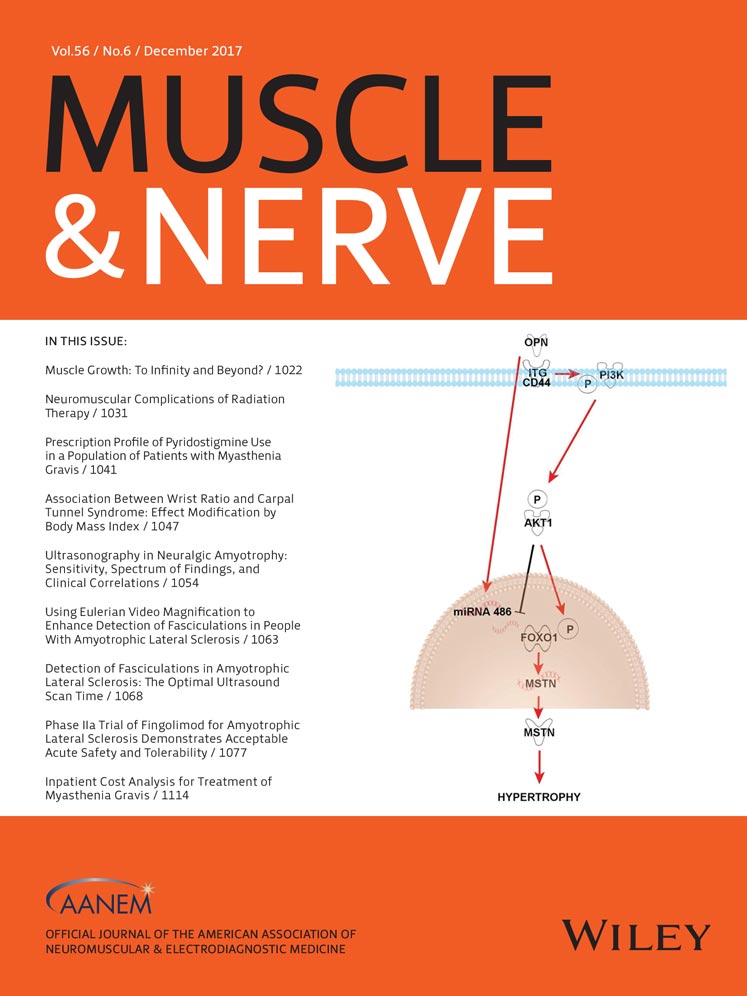Childhood autoimmune necrotizing myopathy with anti-signal recognition particle antibodies
Conflicts of Interest: None of the authors has any conflict of interest to disclose.
ABSTRACT
Introduction
The aim of this study was to describe the therapeutic effects of immunomodulatory therapy in 3 patients with childhood autoimmune necrotizing myopathy with anti-signal recognition particle antibodies (SRP-ANM).
Methods
Before treatment, data on clinical features, muscle pathology, and thigh MRIs were obtained. After definitive diagnoses, all 3 patients were treated with intravenous immunoglobulin and corticosteroids, and thigh MRIs were performed.
Results
Clinical improvements were associated with declines in serum creatine kinase levels. Pretreatment thigh MRIs revealed diffuse, but uneven or focal edema, mostly in the posterior thigh muscles, which was alleviated after immunomodulatory therapy.
Discussion
Childhood SRP-ANM responded well to immunomodulatory therapy. The extent of edema, as monitored by thigh MRI, appears to be a useful marker of disease severity and therapeutic benefit. Muscle Nerve 56: 1181–1187, 2017




